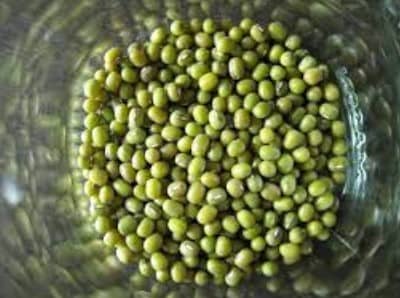Moong dal, or split green gram, is a versatile and widely consumed legume that has found its way into various culinary traditions around the world. Aside from being a culinary delight, Moong dal protein per 100g is celebrated for its rich nutritional profile. In this article, we'll delve into the protein content of moong dal, exploring why it stands out as an excellent source of plant-based protein.
Moong Dal: A Protein-Rich Legume:
Protein Content per 100g: Moong dal is a potent source of plant-based protein. On average, 100 grams of moong dal provides approximately 24 grams of protein. This makes it an ideal choice for individuals looking to meet their protein needs, especially those following vegetarian or vegan diets.
Complete Protein Source: Moong dal is unique among legumes as it contains all essential amino acids, making it a complete protein source. This is significant for vegetarians and vegans who often need to combine different plant-based foods to ensure they get all essential amino acids.
Muscle Building and Repair: Proteins are essential for muscle building and repair. The amino acids present in moong dal support the synthesis of new proteins, contributing to the maintenance and growth of muscle tissues.
Weight Management: The high protein content in moong dal can aid in weight management by promoting a feeling of fullness. Including moong dal in a balanced diet may help control appetite and prevent overeating, supporting those on weight loss or maintenance journeys.
Digestibility and Nutrient Absorption: Moong dal is easily digestible, and its proteins are readily absorbed by the body. This ensures that the amino acids, vitamins, and minerals present in moong dal are efficiently utilized, promoting overall health.
Heart Health: The low saturated fat and cholesterol content in moong dal contribute to heart health. The presence of dietary fiber also aids in maintaining healthy cholesterol levels, reducing the risk of cardiovascular diseases.
Blood Sugar Regulation: Moong dal has a low glycemic index, meaning it has a minimal impact on blood sugar levels. This makes it a suitable choice for individuals managing diabetes or those seeking to stabilize their blood glucose levels.
Rich in Other Nutrients: Beyond protein, moong dal is a good source of essential nutrients such as folate, iron, magnesium, potassium, and B-vitamins. These nutrients play crucial roles in various bodily functions, including energy metabolism and blood cell formation.
Incorporating Moong Dal into Your Diet:
Dal Dishes: Prepare traditional dal dishes such as moong dal tadka, dal fry, or dal khichdi.
Sprouted Moong: Enjoy the benefits of sprouted moong, which enhances its nutritional content and is a delicious addition to salads or stir-fries.
Snacks and Soups: Make moong dal snacks like sprouted moong chaat or moong dal soup for a wholesome and protein-packed treat.
Our Service:-
Conclusion:
Moong dal stands as a nutritional powerhouse, particularly in terms of its protein content per 100 grams. Whether you're focused on muscle building, weight management, or overall well-being, incorporating moong dal into your diet can be a flavorful and nutritious choice. As with any food, it's essential to maintain a balanced diet and consult with healthcare professionals or nutritionists for personalized dietary recommendations.





Comments